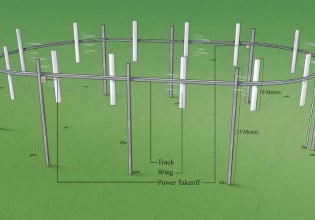The Driving Electric Revolution program announced by UK Research and Innovation is funded by £80 million from the Industrial Strategy Challenge Fund through the Future of Mobility Grand Challenge.
This challenge is designed to allow the UK to seize the economic opportunities from the global transition to clean technologies and electrification. The program will help businesses across numerous sectors including transport, energy, construction and agriculture to invest and work together to capitalize on the UK’s strengths in this technology.
This challenge seeks to make the UK a global leader in the manufacture of core technologies which underpin electrification: Power Electronics, Electric Machines and Drives (PEMD). The Challenge will accelerate the UK's ability to deliver; next generation electric vehicles, hybrid aircraft, energy generation, smart grids, industrial drives, consumer products, low-carbon off-highway for construction and agriculture, low-carbon maritime and rail.
It will help address climate change and contribute to the development of clean technology supply chains worth £80 billion in Gross Domestic Product by 2050.
It will act as a catalyst for industry to invest and collaborate with academia to drive down costs and deliver a volume supply chain necessary to serve businesses of all sizes.
According to the announcement, the UK is world leading in the development of intellectual property in Power Electronics, Machines and Drives (PEMD) and this makes it an attractive base for Foreign Direct Investment. However, almost all is taken to concept without recourse to manufacturing, which tends to happen elsewhere.
Given the fundamental importance this technology will play in the coming decades, the Driving the Electric Revolution challenge seeks to invest in businesses of all sizes, collaborating with academia, to accelerate the development and resilience of supply chains in the UK.
This collaboration will mean investment through four key strands to provide opportunities for industries in the UK to move away from fossil fuels, and new electric products. These four strands are:
- Fast Start Fill the Gaps/Proof of Concept Programs – a project that aims to fill identified gaps in the supply chain for PEMD;
- Industrialization Centers – aiming for the UK to develop the next generation of PEMD products such as electric vehicles and hybrid aircraft, as well as providing a focal point for the business community;
- High efficiency, high volume supply chains – investing in the UK’s capability to develop the necessary machining tools for new manufacturing techniques; and
- Low volume, high value supply chains – aiming to help just-in-time manufacturers to sustain long-term growth.






